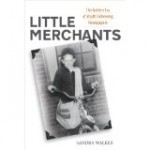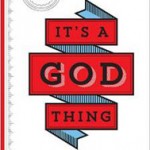
The clock shatters the peace of the quiet, early morning. It is 4:00 and dark. The wind is howling. You want to snuggle deeper under the blankets. But you dutifully crawl out of your warm, cozy bed onto the cold floor and quickly get dressed. Grabbing a bite, you are out the door.
No. You aren’t the milkman going to work in the wee hours of the morning. You are 8 or 9 years old. Some are as young as 4 or 5. You are newspaper boys, on your way to pick up the merchandise you will deliver. As you reach the drop off site of the bundled papers dropped off in the wee hours of the morning by delivery trucks, you don’t have time to think about how cold it is. It is your job to cut the wire or twine holding the bundles together, roll them into deliverable bundles, stuff them in your large bags, get on your bikes and start delivering. When snow and ice prohibit the use of bikes, you walk or use sleds. You are little merchants, as Sandra Walker calls them in her wonderful book, “Little Merchants, the Golden Era of Youth Delivering Newspapers”.










